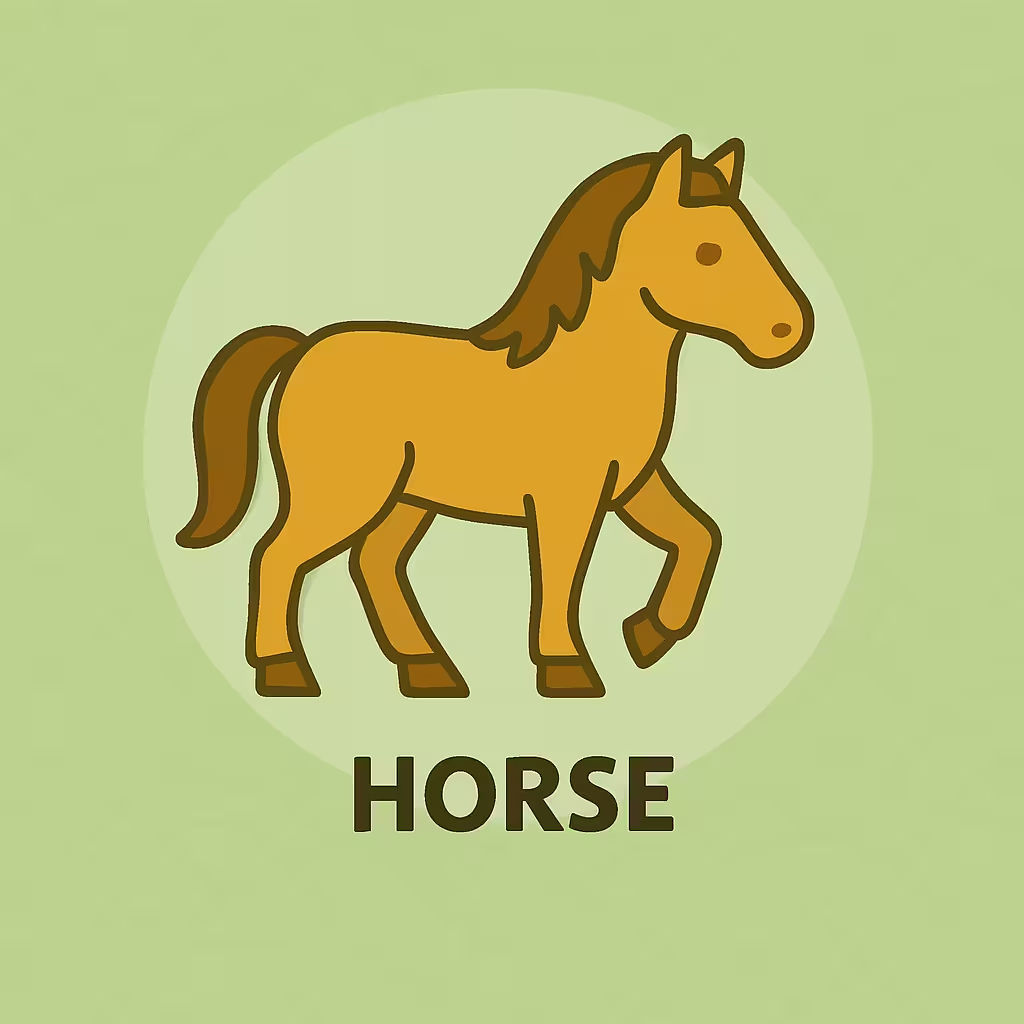Horses have long held an honorable status in Islamic civilization, prized for transportation and in battle. This significance partly underlies the debate over eating horse meat in Islamic law.
Many Muslims ask: is horse meat halal (permissible) or haram (forbidden)?
In the Hanafi school of thought, the answer involves a nuanced difference of opinion among its leading scholars.
Hanafi Fiqh: Is Horse Meat Halal or Haram?
In the Hanafi school (one of the four Sunni Islamic law schools), there is a well-known difference of opinion on eating horse meat. The issue is not black-and-white but involves nuanced views of the early Hanafi authorities.
Here’s a breakdown of the opinions within Hanafi fiqh:
Imam Abu Hanifa’s View – Disliked (Makruh) to Eat Horse Meat
Imam Abu Hanifa (the founding scholar of the Hanafi madhhab) did not encourage consuming horse meat.
He considered it makruh, meaning disliked or discouraged, to the point that some scholars describe his stance as “makruh tahriman" - i.e. prohibitively disliked (nearly haram).
In practice, this would mean a Hanafi following Imam Abu Hanifa’s strict opinion should avoid eating horse meat and would be sinful for doing so without necessity.
The reasoning given by Hanafi jurists is based on the horse’s honorable status and utility. Horses were highly valued for riding, travel, and especially for jihad (warfare). Imam Abu Hanifa felt that slaughtering horses for meat was inappropriate due to its honour and the fact that a horse is needed in Jihad.
In other words, because horses were crucial war mounts and symbols of pride, Imam Abu Hanifa viewed eating them as something best avoided, out of respect and practical wisdom.
It’s important to note that he did not label horse meat outright haram by clear textual evidence - rather, he deemed it undesirable in an effort to uphold the dignity and necessity of the animal.
Imams Abu Yusuf & Muhammad’s View – Horse Meat is Halal
Imam Abu Yusuf and Imam Muhammad - two eminent students of Abu Hanifa (often referred to as the ṣāḥibayn, “the two companions”) - disagreed with their teacher on this matter. They held that horse meat is halal (permissible) to eat, with no intrinsic prohibition.
Their position aligns with the apparent meaning of the hadiths that permit horse consumption. According to their view, since the Prophet (ﷺ) himself allowed eating horse, one should not declare it unlawful or even strongly disliked.
Narrated Jabir bin `Abdullah (Sahih Bukhari):
On the Day of the battle of Khaibar, Allah's Messenger (ﷺ) made donkey's meat unlawful and allowed the eating of horse flesh.
Therefore, within Hanafi jurisprudence, there existed these two opinions – one cautioning against eating horse, and the other permitting it outright.
So, what is the official Hanafi ruling given this difference? Classical Hanafi sources reconcile the views by stating that horse meat can be consumed (halal), but it is better to avoid it if possible.
This effectively adopts the stance of Imam Abu Yusuf and Imam Muhammad (permissibility) while honoring Imam Abu Hanifa’s concern (preference to abstain).
FAQs
Is horse meat halal for Muslims?
Yes, horse meat is considered halal for Muslims according to the majority of Islamic scholars. However, we should avoid it if possible (i.e. should not be eaten unless necessary).
Is horse meat halal in Hanafi?
There is a difference of opinion in the Hanafi school: Imam Abu Hanifa considered horse meat disliked (makruh), while his students Abu Yusuf and Muhammad deemed it halal. The overall Hanafi position is that horse meat is halal but better avoided.
Is eating horse meat forbidden in Islam?
No, eating horse meat is not forbidden in Islam. The majority of scholars permit it, and there are authentic hadith where the Prophet ﷺ allowed the consumption of horse meat
Is horse meat halal for Muslims?
Yes, horse meat is considered halal for Muslims according to the majority of Islamic scholars, with supporting evidence from hadith where the Prophet ﷺ permitted eating horse meat.
Can Hanafi eat horse meat?
Yes, followers of the Hanafi school can eat horse meat, but it is considered better to avoid it according to Imam Abu Hanifa, while his students regarded it as fully halal.
Is horse meat haram or makrooh?
Horse meat is not haram in the Hanafi school, but Imam Abu Hanifa considered it makruh (disliked), while his students Abu Yusuf and Muhammad considered it halal.
Is it halal to eat horse meat in Islam?
Yes, it is halal to eat horse meat in Islam, as supported by authentic hadith and the opinions of most scholars.
Is it a sin to eat horse meat?
No, it is not a sin to eat horse meat, as it is not forbidden in Islam; however, some Hanafi scholars recommend avoiding it meaning it is makruh (disliked). However, this does not mean you are sinful.
Is eating horse meat forbidden in Islam?
No, eating horse meat is not forbidden in Islam, as the Prophet ﷺ permitted it and only forbade donkey meat.
Conclusion: Horse Meat and the Hanafi Position
Is horse meat halal in the Hanafi school of thought? In summary, yes, horse meat is halal according to the Hanafi madhhab, but with an important caveat.
Due to Imam Abu Hanifa’s initial stance, eating horse is traditionally seen as disliked or better avoided, although not strictly forbidden.
For Hanafi followers today, this means you are allowed to consume horse meat if needed or in situations where it’s customary, and your food will be considered halal. However, it is recommended to refrain from making horse meat a regular part of your diet out of respect for the animal and adherence to the more cautious Hanafi opinion.
Ultimately, a Hanafi Muslim should not condemn horse meat as haram, but recognizing it as an unusual or discouraged food is in line with the Hanafi perspective.
And Allah knows best.


















.avif)

Lorem ipsum dolor sit amet, consectetur adipiscing elit. Suspendisse varius enim in eros elementum tristique. Duis cursus, mi quis viverra ornare, eros dolor interdum nulla, ut commodo diam libero vitae erat. Aenean faucibus nibh et justo cursus id rutrum lorem imperdiet. Nunc ut sem vitae risus tristique posuere.
Lorem ipsum dolor sit amet, consectetur adipiscing elit. Suspendisse varius enim in eros elementum tristique. Duis cursus, mi quis viverra ornare, eros dolor interdum nulla, ut commodo diam libero vitae erat. Aenean faucibus nibh et justo cursus id rutrum lorem imperdiet. Nunc ut sem vitae risus tristique posuere.